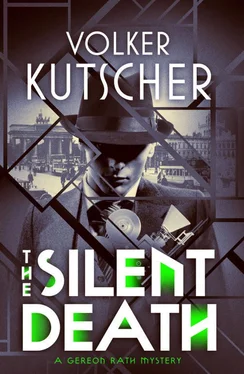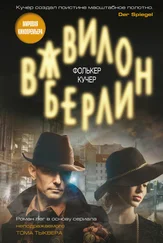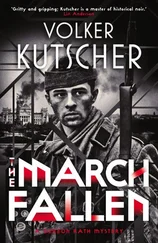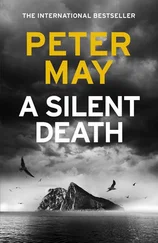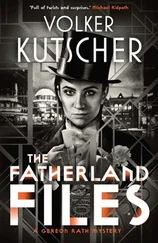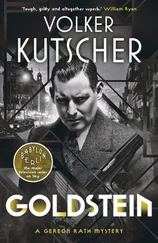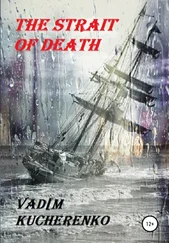The clock tower by the admin building showed quarter to eight, but the harbour was already humming with activity, the Ford plant too. Even at this hour a few unemployed men were loitering hopefully outside the entrance. He parked the Buick directly under the Ford advertising hoarding.
Goatee Beard from Personnel was unpacking his briefcase when Rath entered the office. ‘Weren’t you supposed to come by yesterday?’ the man grumbled, passing several pages of names across the table. ‘I needn’t have hurried.’
‘More haste, less speed,’ Rath said.
He skimmed the lists in the car: over two hundred names complete with address and date of birth, details of training and start date. There were huge numbers of unskilled workers engaged here. No wonder there were queues of unemployed outside. Only four names appeared on both these and the Adenauer list: two Müllers, a Schröder and a Krüger. However, there was only one Anton. Anton Schmieder, trained car mechanic, had been with Ford for two years. It had to be the red-haired assembly worker whom Bahlke had called Toni. Why would a man like that leave his workplace on the spur of the moment? Perhaps after hearing that a police officer was speaking to the foreman? Rath noted the address.
He arrived at the morning briefing at nine sharp, ahead of Lange. Vivian Franck’s luggage was on the podium in front of the blackboard, which Böhm sometimes used to make notes or scrawl arrows and geometric figures that no one understood. He had laid out the contents of the suitcases on a long line of tables and was talking quietly to Kronberg. When he stepped onto the lectern, conversation in the room gradually ceased. At the last moment Lange scurried through the door, gazing around searchingly before sitting next to Rath.
Böhm praised the newcomer for having found the luggage together with Rath. Although Lange was keeping a low profile, the DCI probably thought the whole thing had been his idea, since the assistant detective had been the one to interrogate the taxi driver.
The luggage hadn’t yielded any significant insights, except that Vivian Franck must have had both good taste and a lot of money. Böhm was hoping for more from the list of names provided by the broker, which contained all those who possessed a key to the Luxor Cinema.
Nor had the bulldog forgotten the task he had assigned to Rath. ‘Have you found that private detective yet?’
‘I was going to look into it today,’ Rath lied, casting a sidelong glance at Lange, who didn’t bat an eyelash.
Surprisingly, the Winter team, which hadn’t made any progress for days, had made a little headway: Gräf and his squad had taken up Krempin’s trail again in Grunewald, in whose allotments the previous search had been concentrated. Gräf and Czerwinski had found cigarette butts in an abandoned summer house, the same kind Rath had uncovered in the empty flat on Guerickestrasse.
Unfortunately, Krempin was already gone by the time the police got there. The man never seemed to stay in the one place for any length of time. Would he be at the Funkturm this lunchtime? Rath still wasn’t entirely sure, but he had asked Weinert to come along and the journalist had needed no second invitation. Rath could barely concentrate on the briefing. He hadn’t told anyone about the meeting save for Weinert, and he intended to keep his word.
The morning passed uneventfully. At least Böhm hadn’t assigned them any of the key owners. He and Lange were to continue looking into the stranger at Wilmersdorf.
The police sketch artist was already waiting in the office when they emerged from the briefing. Erika Voss was making him coffee and seemed very interested in the man’s artistic skills.
‘What sort of thing do you usually paint?’
‘I draw,’ the man said. ‘Mostly in the courtroom, rather than for the police.’
‘Do you do it for pleasure too?’
‘Only to pass the time.’
‘What do you paint then?’
‘I draw. Cityscapes or street scenes mostly. Sketching from life.’
‘I see,’ Erika Voss said, pouring hot water into the filter. Perhaps cityscapes weren’t her thing.
‘The witness should be here any moment,’ Rath said, hanging up his hat and coat. ‘Have you drawn a portrait from your imagination before? From another person’s testimony?’
‘It can work,’ the sketch artist said. ‘It depends on how good your witness is at describing things.’
Friedhelm Ziehlke provided a clear answer when he arrived shortly afterwards. The sketch artist had to keep pressing him every five seconds, aided by Lange, who tried again and again to jog his memory. Ziehlke wasn’t even sure about the man’s hair colour, remembering only that it was ‘kind of dark’. After quarter of an hour, the sketch artist had discarded five sheets of paper.
Rath doubted whether they would be able to identify the stranger from Wilmersdorf using this method, but at least it provided a pretext to keep Lange in the office. Rath took him to one side.
‘You hold the fort until old Zille here is finished,’ he said. ‘I’ll use the time to head out to Wilmersdorf. Perhaps something will occur to me there.’ Lange nodded and gave a forced smile, saying nothing. ‘Give the taxi driver until one. If we don’t have anything half-decent by then, send him home, and go and get something to eat with the artist and Fräulein Voss.’
There was still more than an hour until his meeting. Before making for the car, Rath looked for a free telephone booth at Alex.
Charly wasn’t home, only her friend Greta. If he had got her on the line, he might have tried to postpone, but he couldn’t call off like this, not through another person and over the telephone. He asked Greta to tell Charly that he would pick her up at half past seven.
Next he called the editorial office and asked for Weinert. ‘I can give you a ride in half an hour,’ he said. ‘That way, at least we’ll be on time. The last thing we want is to get stuck in traffic.’
Rath used the time to eat a little something at Aschinger before driving to Kochstrasse. Weinert was waiting outside the editorial building, a black umbrella wedged under his arm, seeming more nervous than usual.
They still had quarter of an hour when Rath parked the Buick in Masurenallee. It was quiet at the base of the Funkturm. There was no trade fair taking place, and the weather wasn’t exactly enticing. Weinert let Rath under his umbrella when it began to drizzle. They had to pay entry before entering the lift, just like everywhere in this city where there were too many tourists, and by five to one had managed to locate a window seat in the Funkturm restaurant. The waiter looked a little peeved when Rath only ordered a glass of Selters and Weinert a coffee.
‘We’re waiting for someone,’ Rath explained when the drinks came. Not that it was going to be a lavish midday meal, but the waiter didn’t have to know that.
What would Krempin tell them, and would he even come? Rath hadn’t told a soul about the meeting, with the exception of Weinert. Any one of his colleagues would have used the opportunity to intervene, and no doubt that was what Krempin meant to find out. The man was here somewhere checking the lie of the land; indeed, had probably been doing so for quite some time, making sure that Rath and Weinert really were on their own.
They sat at the table in silence, sipping their drinks. Rath lit an Overstolz. He was growing impatient. They had been sitting for ten minutes now. Had Krempin got cold feet, or had he taken some harmless passers-by for police officers and fled?
Outside, the rain fell in fine droplets over the roof edge and into the depths below. The weather wasn’t getting any better, but he could still just about make out the spire of Charlottenburg Town Hall. The view didn’t extend any further over the sea of houses, which disappeared into the dull haze.
Читать дальше
